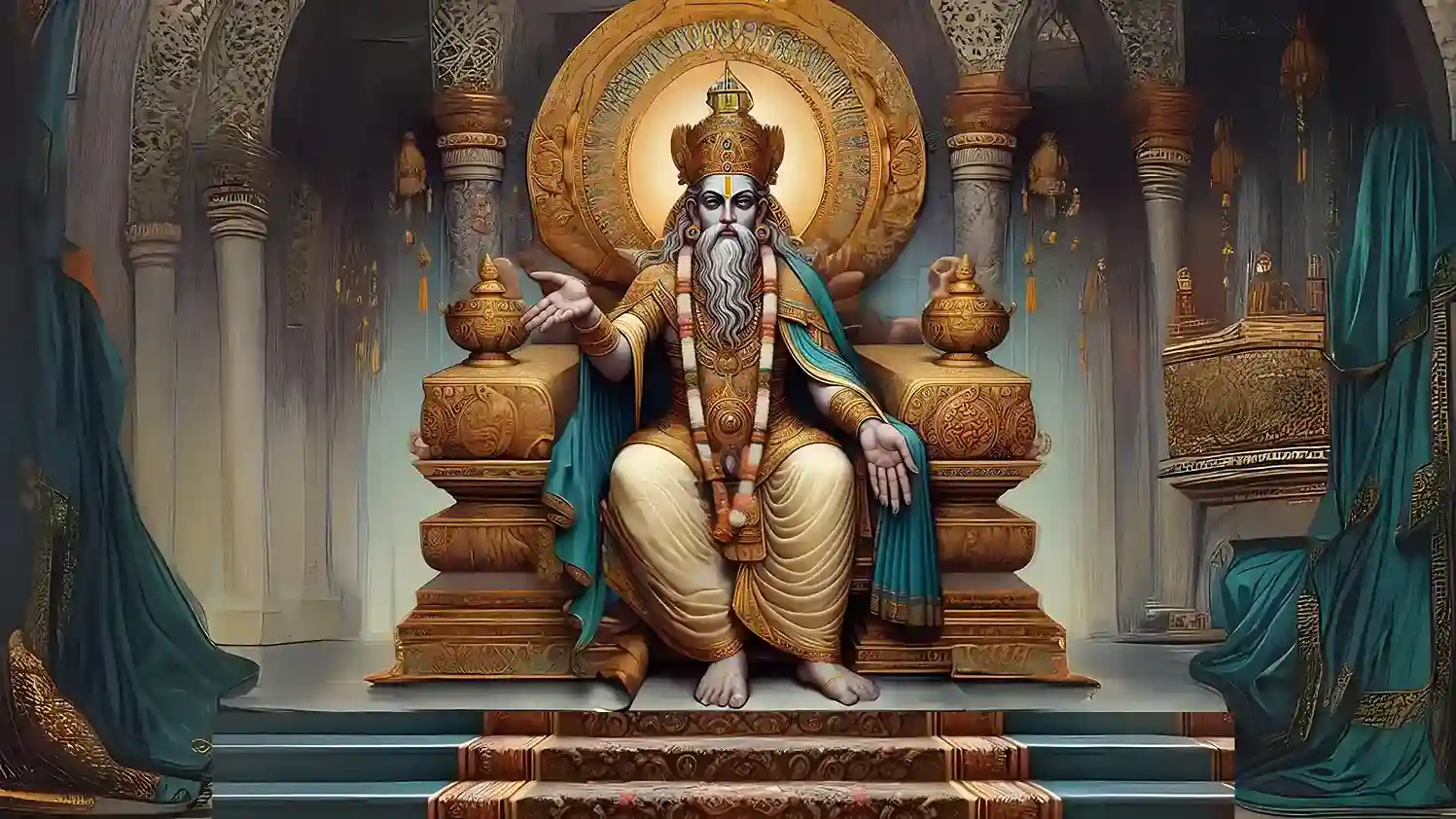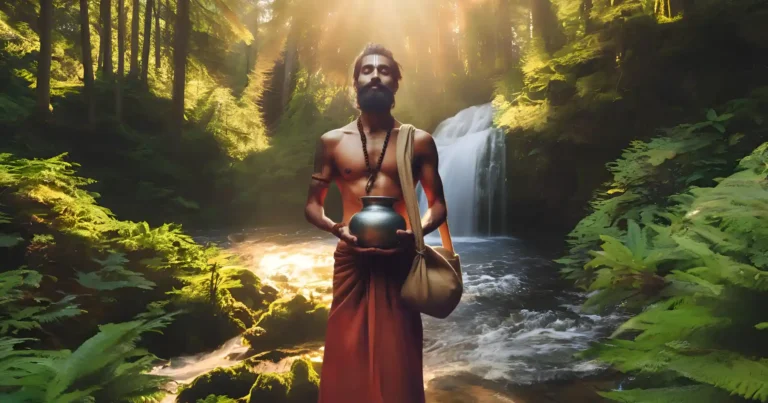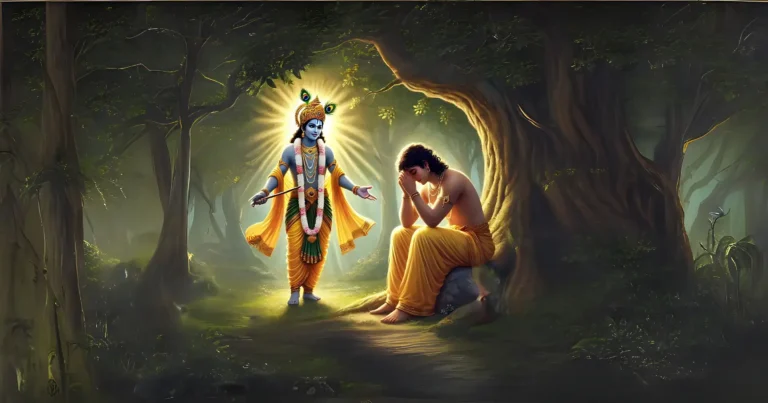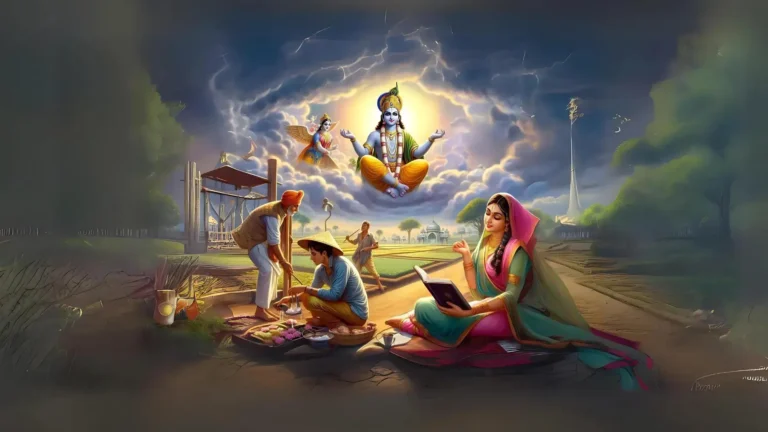Please Like the Blog and Use the Share Button Below for Maximum Reach
Table of Contents
The Diabolical King Dhritarashtra
Dhritarashtra represents the basis of Kaliyuga. Since it was almost the end of Dwapara Yuga, during the reign of King Dhritarashtra, the footsteps of the dark age of Kali were already being heard. The king was not only blind but also lacked the wisdom of his predecessors.
He gave way to his suppressed and diabolical design of usurping the rights of his nephews, the Pandavas. He was the root cause of the Mahabharata War. Duryodhana, his eldest son, was a rotten fruit of the tree of his unfair ambitions. He spearheaded the ultimate annihilation of the Kuru race.
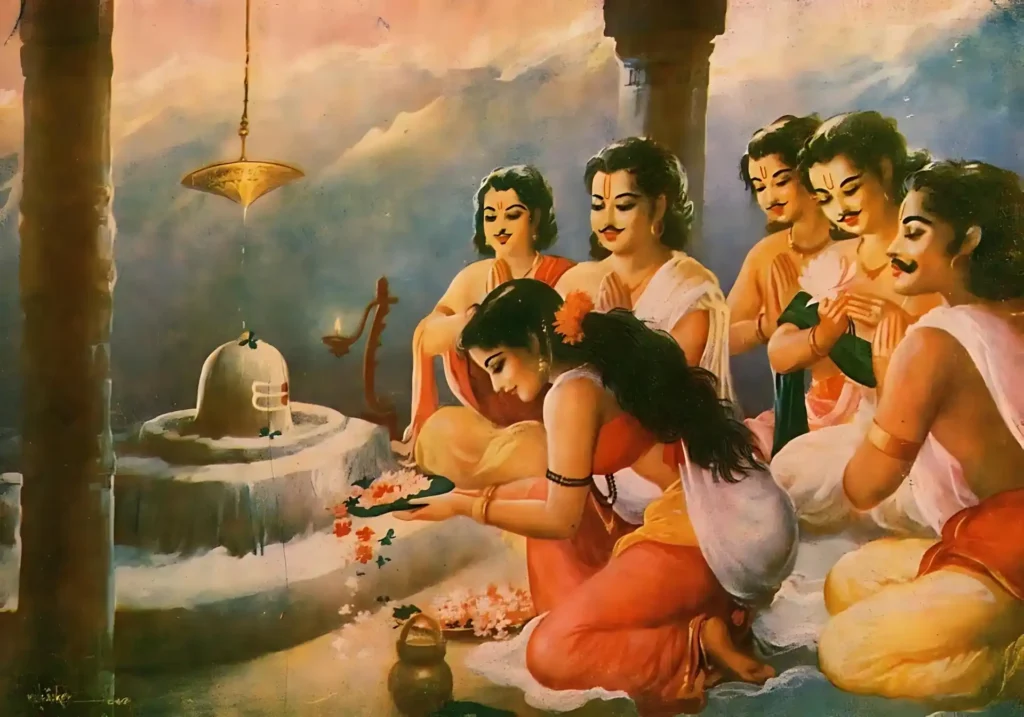
Dhritarashtra, although an evil one by heart, cloaked his emotion with a fake covering of love toward his elders, especially Bhishma. He also appeared to be sympathetic towards his sworn enemies, the Pandavas. He would always encourage the wise Vidura to extend his suggestions, as if, very devoted to his step-brother, Vidura’s views, but ultimately he would only execute his evil designs without the slightest hesitation.
Bhishma could not thwart Dhritarashtra’s Evil Designs
Bhishma, the grandsire of the Kuru race was bound to the throne and was troubled by the sickening decisions of Dhritarashtra. He was ill-equipped to restrict the execution of partial actions of Dhritarashtra towards his son Duryodhana. Duryodhana’s foolish and self-centered deeds led to the greatest war in history which continued unabated for 18 days.
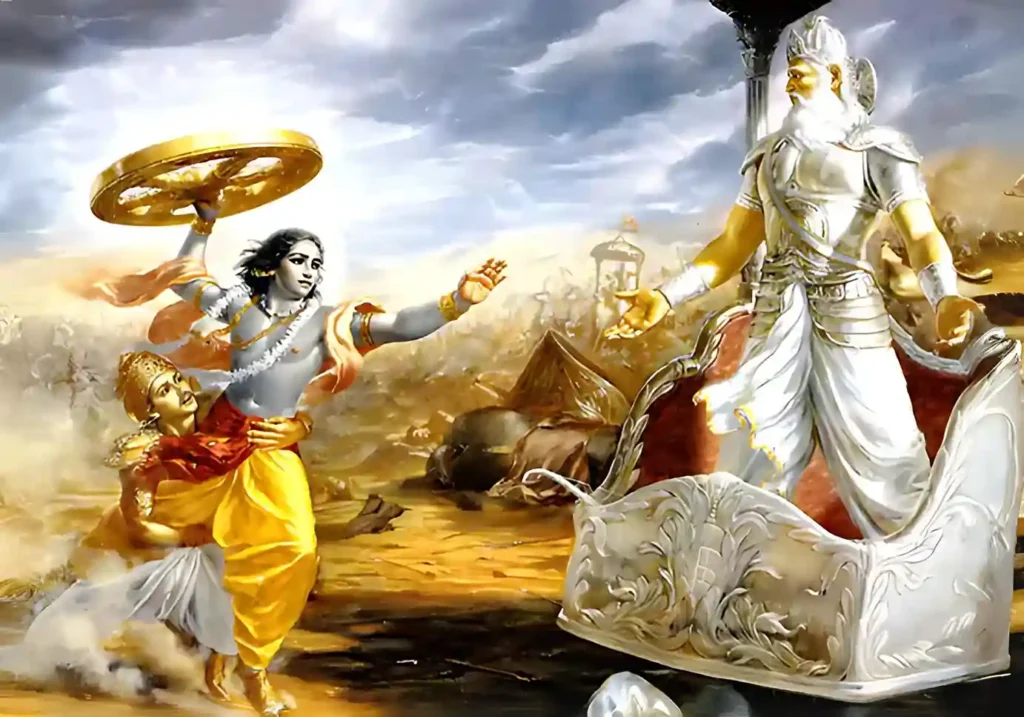
Dhritarashtra, tried to stop the war because he was aware that Sri Krishna was on the side of the Pandavas. Who did not know at that time, that whosoever Sri Krishna supported, would ultimately win? Dhritarashtra finally gave way to his attachment, knowing well that his son would ultimately be slain by the will of Sri Krishna.
Owing to his blinded intelligence, the king went ahead and ordained the war in favor of Duryodhana’s childish tantrums.
Sage Veda Vyasa opens the Gita with Dhritarashtra’s question to Sanjaya
The initial chapter of the Bhagavad Gita starts with the statement of Dhritarashtra. It is worthwhile to note that Sri Vyasa who penned down the Mahabharata, opened the lines of the Bhagavad Gita with the phrase, Dritharashtrau Vacha.
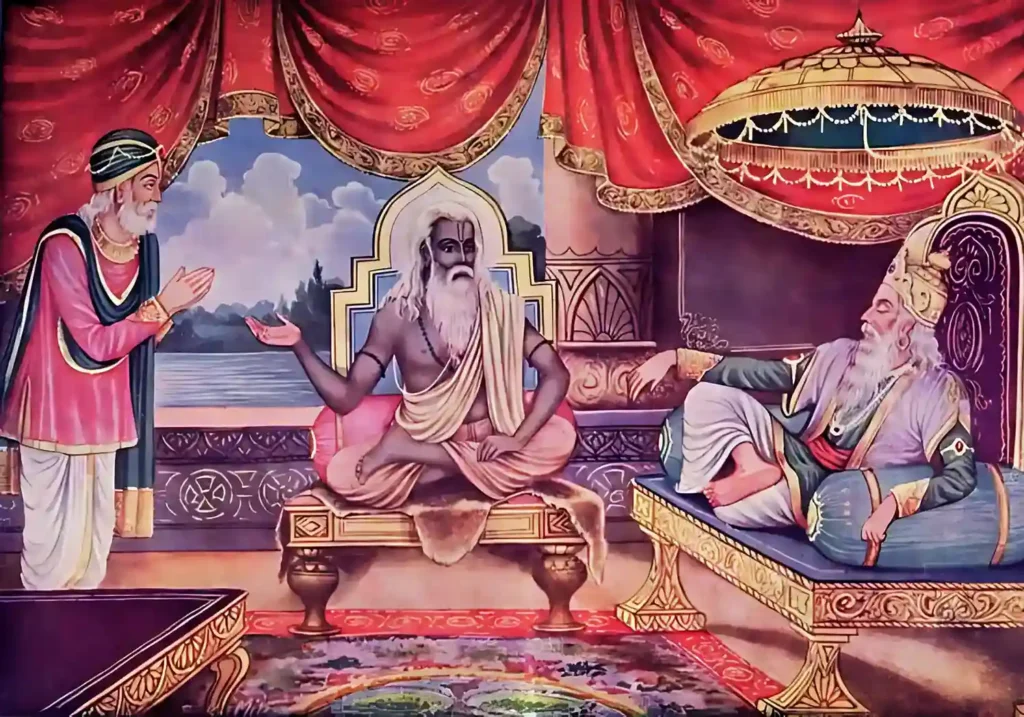
Thus at the very beginning, Sri Vyasa gave credit to Dhritarashtra, which means that without Dhritarashtra, this great scripture known as Bhagavad Gita, would not have seen the light of the day.
This is Sanatana Dharma.
7/8 Questions from Sanatana Dharma
The scores generated in this Quiz may or may not be absolute. There may be right or wrong answers to each Question. A percentage towards 100 indicates that you are more aligned to the overall subject matter.
Bhagawan is the Summum Bonum of God and Devil
Sanatana Dharma does not distinguish between God and Devil in a broader sense. Devil is another form of God. It is God all the way, irrespective of good or bad. It is God or Bhagavan who has advised us through the Gita, that although He covers the entire spectrum from outright evil to the epitome of compassion, it is man’s dharma to follow the good and give up evil.
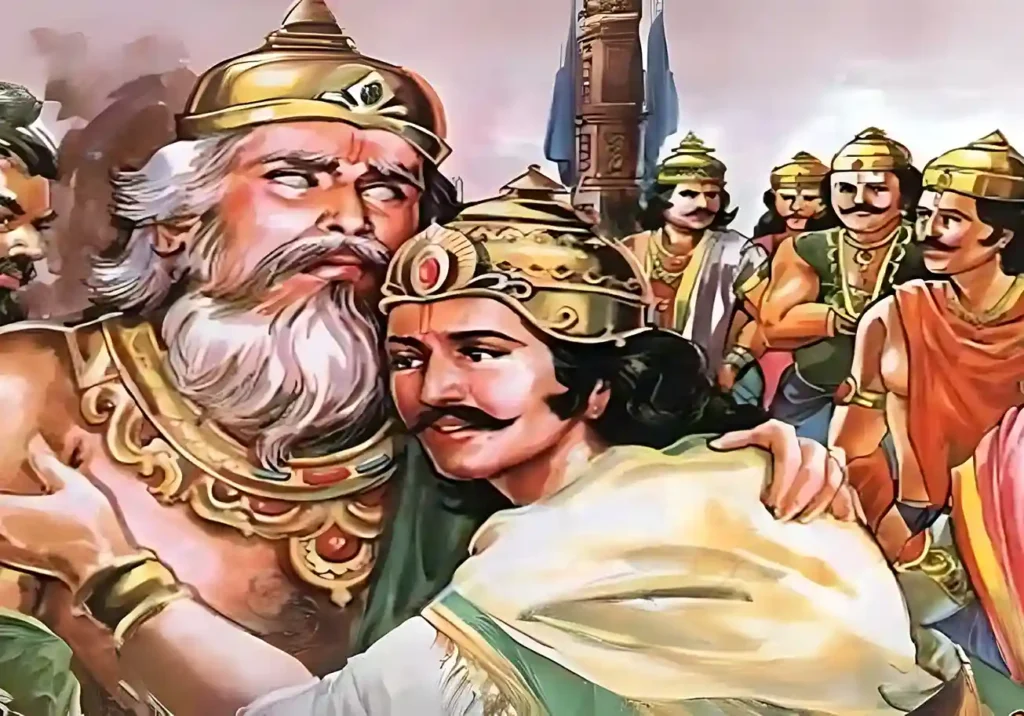
Man has to recognize that Dhritarashtra was a plan of Sri Krishna Himself. Dhritarashtra executed his role to perfection, according to the inner plans of the Supreme Lord. Sri Vyasa recognizes the role of Dhritarashtra in the war and gives him ultimate credit with the opening lines of the Gita.
The Gita begins thus,
धृतराष्ट्रउवाच |
धर्मक्षेत्रेकुरुक्षेत्रेसमवेतायुयुत्सवः |मामकाःपाण्डवाश्चैवकिमकुर्वतसञ्जय ||1|||
dhṛtarāṣṭrauvāca |
dharmakṣetrekurukṣetresamavetāyuyutsavaḥ māmakāḥpāṇḍavāścaivakimakurvatasañjaya ||1|||
Dhritarashtra very well knew that he was on the side of Adharma or unrighteousness. Although Dhritarashtra was blinded by his ambitions and attachment towards Duryodhana, he knew what was Dharma and that he was on the side of Adharma.
He knew the Shastras, yet he wanted to implement whatever he felt was apt. He calls the war of Kurukshetra as a war of Dharma. He calls the war, a holy war. But his divisive nature is also reflected in his statement where he inquires as to what are my sons and the sons of my brother Pandu doing.
The Position of Kurukshetra
He calls Kurukshetra a teertha or holy land.
The greatness of Kurukshetra as a Dhama or holy land is discussed in Chapter 83 of the Vana Parva in the scriptural epic the Mahabharata and also in Chapter 53 of the Shalya Parva. The present-day geographical position of Kurukshetra is to the south of Ambala district in Haryana, and north of Delhi.
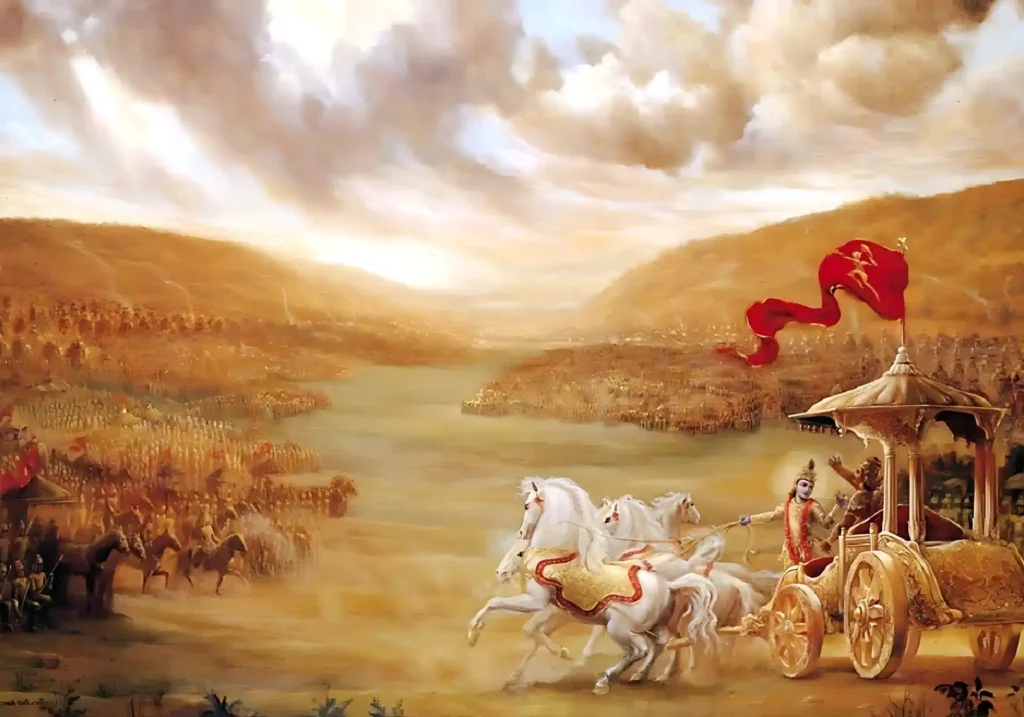
Kurukshetra is known to be a place where Brahma, Agni Deva, Indra Deva, and other celestials performed severe penance. Even Kuru, the forefather of the Kuru Dynasty performed severe penance in Kurukshetra. Dhritarashtra was aware of all these facts and therefore addresses the war about to commence in Kurukshetra, as the holy war.
It is believed that souls who leave their bodies in this holy stretch of Kurukshetra would ascend to the higher domains of existence. That is why Kurukshetra is also known as Punya Kshetra.
Only souls who are extremely fortunate and have a host of divine qualities would have the chance to give up their bodies in Kurukshetra. There can be no doubt that even the evil-minded Duryodhana and his brothers were great souls, with accumulated merit, who gave up their mortal coil in the land of Kurukshetra.
Duryodhana: Evil Fruit of Dhritarashta’s Ambitions
The immediate fruit of Dritharashtra’s ambition was Duryodhana. Duryodhana was blinded by envy and hatred towards his cousins, the Pandavas. His only ambition was to get the better of the Pandavas and punish them for whatever they stood for.
The Pandavas represented the epitome of Dharma. Naturally, a person envious of the Pandavas would be a person who did not care about Dharma. He would be a person who would resort to any means to displace the good.
Duryodhana thus represented the epitome of Adharma, the epitome of evil-mindedness. It is important to note that anyone who is evil, is never at rest. He shall know no peace because his mind is heavy with envy and constantly plotting to transgress the rights of the noble ones. Dritharashtra and his son Duryodhana along with Dushasana, Karna, and Shakuni form the basis of the war of Kurukshetra, owing to their cheating mentality.
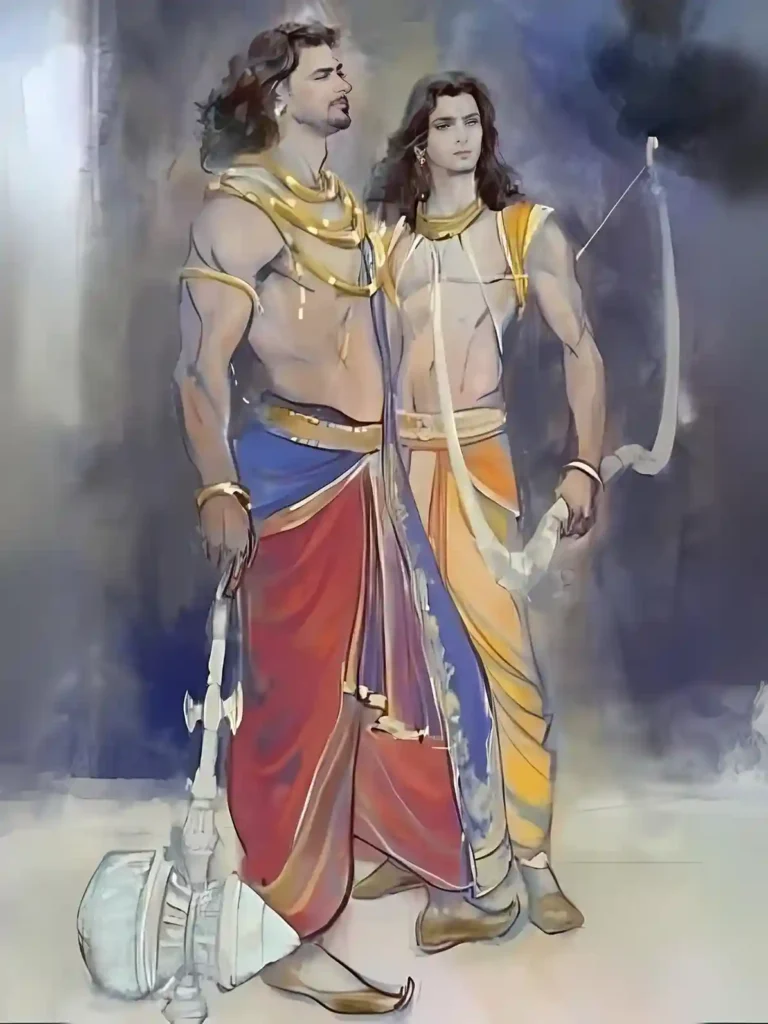
Duryodhana always felt inferior to the Pandavas from within. In life, whenever we have negative emotions, we feel inferior and there is an urge within us, to show others down. When someone insults us, we can be certain that such a person is uncertain about his own position and out of frustration is insulting us.
One should be patient with such people. People who are envious should be avoided and we should not go to advise them. Although we advise with the best of intentions, the evil-minded ones will feel that we are getting back at them and they can become hostile, towards us and can get into a revengeful mode.
Who else, other than Duryodhana can demonstrate this quality of the evil ones to us? He hated the Pandavas because the Pandavas were skilled.
He hated Yudhishthira because he was Dharma personified and he hated Bhīma and Arjuna because there was no one better than them in their respective skill departments.
Sanjaya’s Divya Drishti (Divine Vision)
When Dritharashtra enquired from Sanjaya, his charioteer, and dear friend and advisor, as to what his sons and the Pandavas were doing on the battlefield, Sanjaya went ahead to answer that doubt of Dhritarashtra. One may wonder how Sanjaya could see what is happening on the battlefield that was happening far away from the palace of King Dritharashtra.
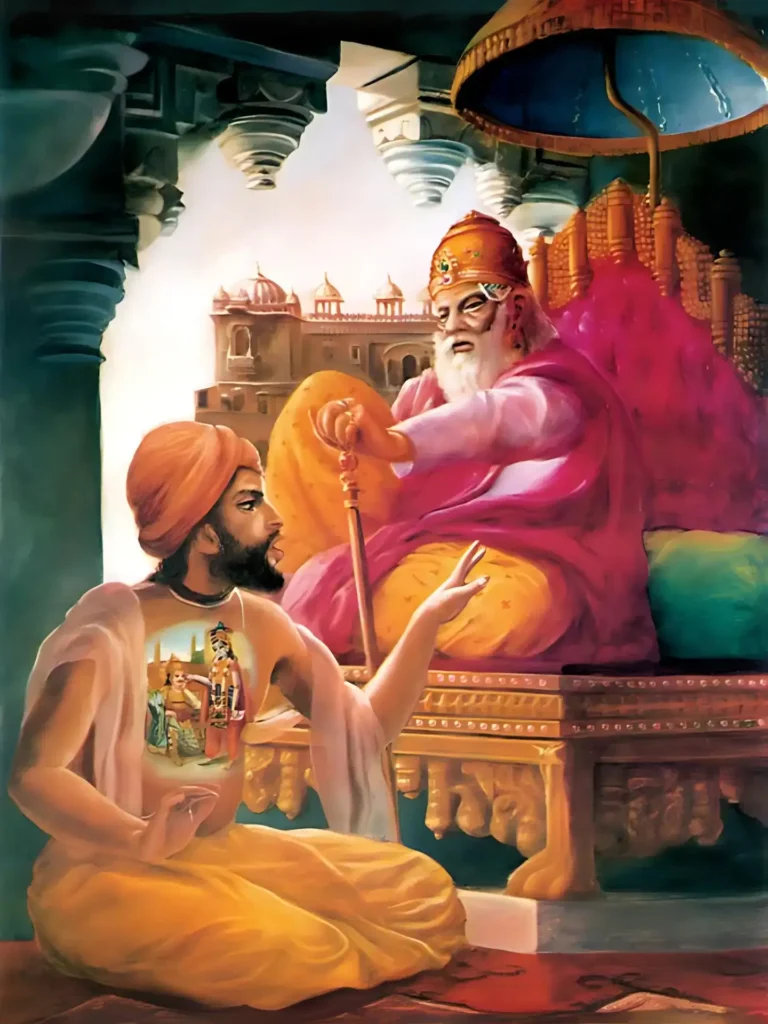
The answer to this is his ability of Extra sensory perception, which is even recognized by modern science as the ability of clairvoyance and clairaudience. This is the ability to see and hear a scene that is happening in any corner of this world or even in dimensions beyond this physical plane.
The old masters had the ability to inject this ability into other beings who were Truthful and faithful, into those who are dedicated to the path of Dharma. Sanjaya, although a servant of Dritharashtra, was forthright and never hesitated to speak the Truth, without bothering about the consequences.
Dhritarashtra’s Dependence on Sanjaya
He would not speak words that would only satisfy the King but dared to question King Dritharashtra on matters of Dharma, without fearing, losing his job as the King’s charioteer. That was another reason Dritharashtra depended on Sanjaya, knowing well that Sanjaya would always speak the Truth.
This was a small feather on Dritharashtra’s crown,and he was ready to listen to harsh words of Truth spoken to him, either by Vidura, his step-brother and minister, and Sanjaya, his friend, and charioteer.
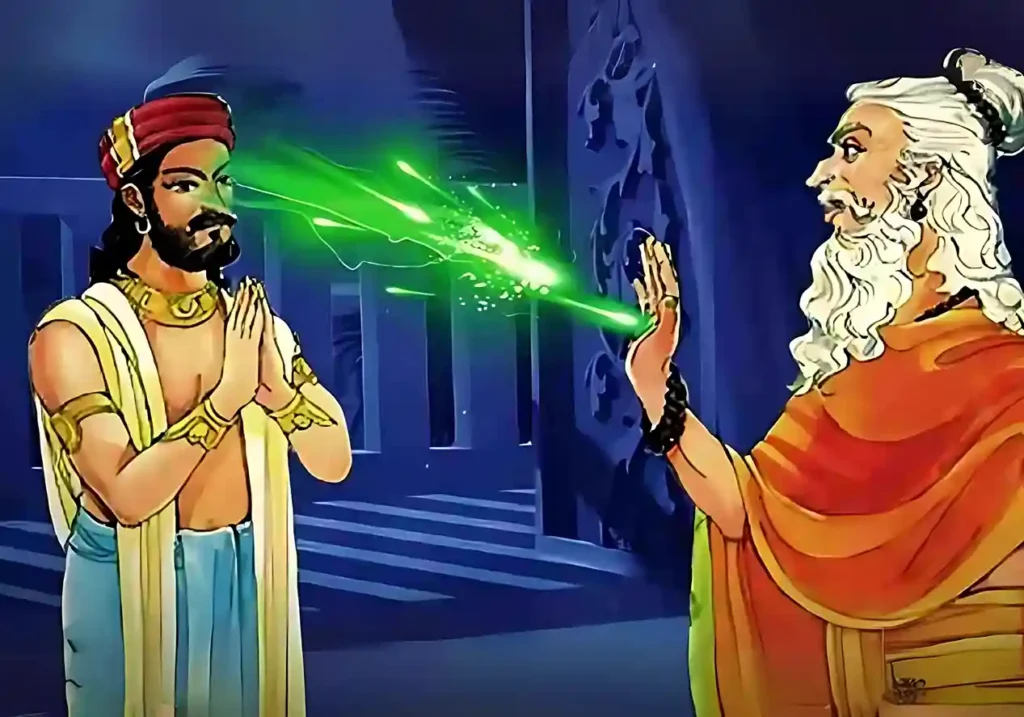
The great Sage Vyasa infused the power of clairvoyance and clairaudience into Sanjaya.This was because Sanjaya never worked for self-interest and always toiled in the interests of his king and abided by Truth.Therefore, a single blessing from Sage Vyasa gave Sanjaya these ESP abilities.
Sanatana Dharma demands a certain amount of commitment to Truth and surrender so that one is blessed with some powers that can be used for the betterment of the universe.The Lord gives such abilities to the noble ones even without their asking, knowing well that, such an entity will use it for the welfare of the universe.
Sanjaya reported to his King that he saw Duryodhana walking towards Dronacharya, his preceptor, to exchange a few words with him.
Please Like the Blog and Use the Share Button Below for Maximum Reach
You display your love by reading this valuable material. So kindly read and consider financially supporting us to keep our efforts going with renewed vigor! Supporters in India can donate via Razorpay while those abroad can use PayPal!

